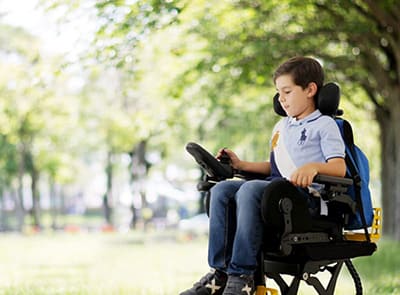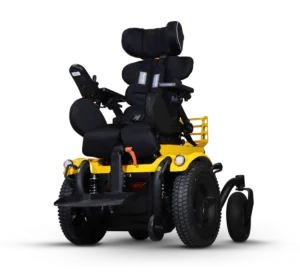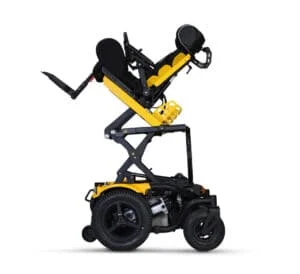Studies have shown that for a child with mobility impairments, the early introduction of power mobility enhances the development of skills (Jones et al., 2012; Guerette et al., 2013; Livingstone & Field, 2014). It’s also widely recognised that early independent mobility improves self-esteem and confidence and reduces apathy and depression (Guerette et al., 2013).

Studies have shown that early access to independent mobility improves self-esteem and confidence but how do you know if a child is suitable for a power wheelchair?
Not long ago, people thought the best time to use power mobility was pre-school (3 years old) or even later. They thought that younger children were unable to learn how to drive a power wheelchair at such an early age because they thought that the children would get hurt or bump into other objects.
Is this really the case?
So how early is a child ready for powered mobility? According to previous research, children as young as 18 to 20 months have learned to drive a power wheelchair within a period of 2 to 4 weeks (Butler et al., 1983 & 1984; Jones et al., 2003).
Although children with complex developmental delays and cognitive limitations need longer time to practice, they still successfully develop the skills to drive powered mobility (Bottos et al., 2001; Guarrera-Bowlby & Deutsch, 2007). In a recent study, children as young as 14-17 months old have shown the ability to learn power mobility skills when provided with frequent opportunities to practice (Casey et al., 2013).
The key to success for powered mobility is to provide encouragement and repeated learning opportunities. Generally, a child who demonstrates emerging skills and motivation to drive, with sufficient control for the joystick, is already ready for powered mobility.
Featured Product:
Sneak peek at Kameleon before our official launch. Approx. 2021 Q4

Ken Chen, PT, MS, ATP
Global Product Training and Development Manager
Ken has 10 years of experience as a physical therapist in the area of wheelchair seating/mobility. Ken took on the role of Product Manager for Karma in 2012 and was responsible for the research on user needs and market trends for product development. In 2015, Ken got certified Assistive Technology Professional (ATP) accredited from RESNA.
In 2018, Ken was transferred to the sales department in Taiwan to provide custom products and services for disabled users. He has provided a variety of continuing education courses and lectures in the area of seating/mobility for Taiwanese therapists.
In 2020, Ken was appointed as Product Educator in Karma Group. Now he provides a variety of product training and clinical education courses to the global dealers, distributors, and therapists with Karma’s clinical consultant Pau-Lee.

 Global
Global
